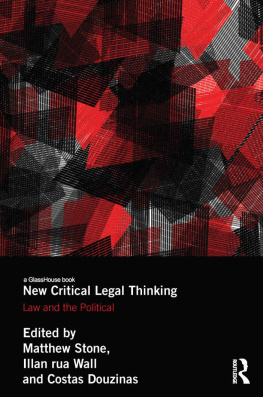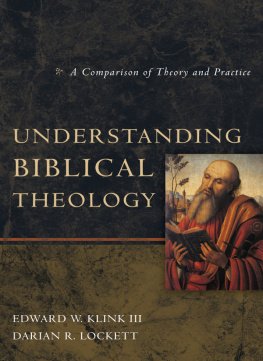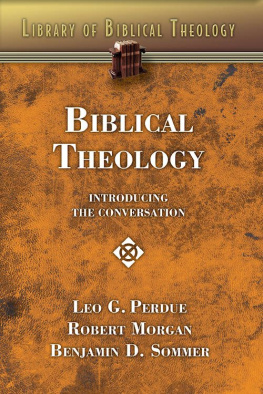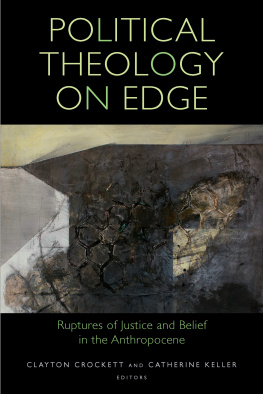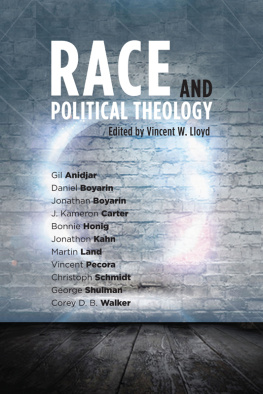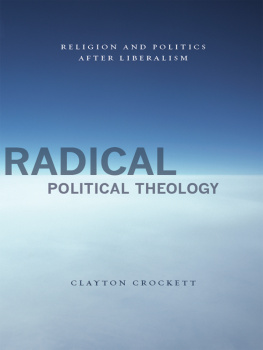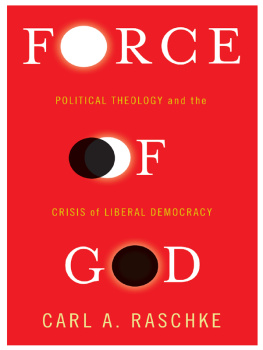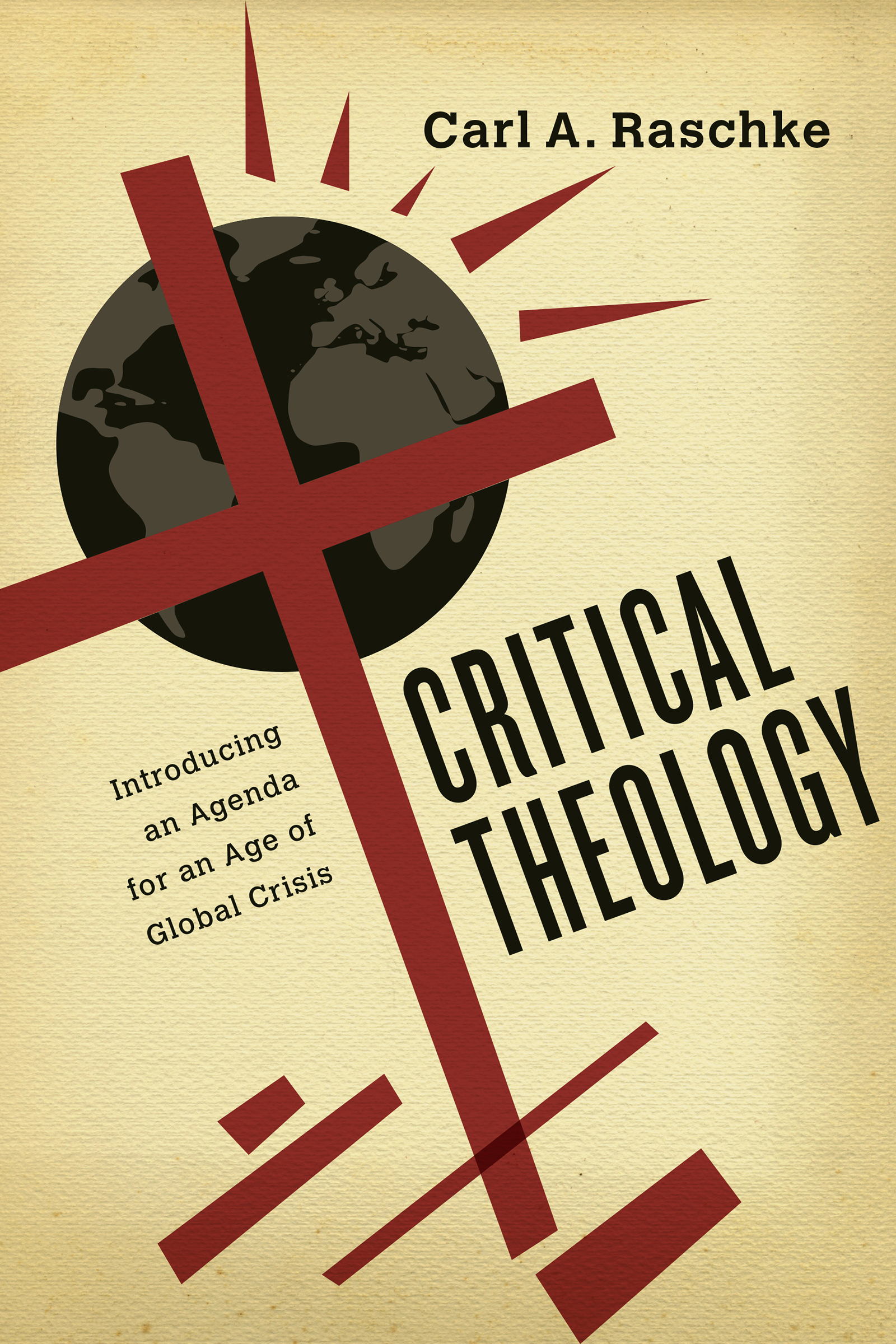
To my wife, Sunny,
and my family in the NetherlandsErik and Jikke
as well as my grandchildren, Kes and Casjen
Contents
Preface
T his following little book constitutes an ambitious thought experiment that emerged from a casual blog post in the spring of 2014 in the international online publication Political Theology Today. The post concerning the need for a new critical theology caught the interest of editors at IVP Academic, and the development of this book project was the outcome. The idea of a critical theology of course was drawn from the familiar academic genre of critical theory, first put forth by neo-Marxists in the 1920s in Germany before it migrated to America prior to the Second World War on account of Hitlers persecution of its main proponents. The article in Political Theology Today called attention to the rise of a new kind of critical theory represented by some of todays most famous philosophers from Continental Europe and social theorists who, like Karl Marx and Friedrich Engels themselves in the mid-nineteenth century, believed that the historical antecedents to the modern secular, revolutionary impulse could be found in Christianity and its struggle against the principalities and power that enslaved human beings at both a social and spiritual level.
The question that arose out of these peculiar ruminations was whether this preoccupation of the new interdisciplinary theorists with theological concerns could be considered a time for the emergence of a new critical theology from within the matrix of critical theory itself. A possible convergence of these secular interests, or what has previously been conceived in the theological mindespecially the evangelical Protestant oneas high-powered social and cultural critique, with the kind of deconstructive faith-based analysis normally aimed at standard theological practices, institutions and modes of discourse, is a risky one. But in just a decade or so we have all been thrust into the maelstrom of a globalized world where the discussion of faith largely as a challenge for the individual believer in the declining Western world has become less and less compelling, or relevant. Every day in the headlines we encounter the specter of a new worldwide sociopolitical volatility and instability, demonstrating the fragility of the liberal world order that we have come to take for granted in many of our lifetimes. Month after month the instability grows and has violent repercussions in the supposedly safe zones that are the Western liberal democracies, as the accelerating pace of terrorist attacks indicates.
The thesis of this project is complex, but also straightforward in many respects. It is that the new era of global crisis demands a whole new theological formulary that is unprecedented both in the content of the challenges it faces and in the conceptual resources or intellectual capital on which it must draw. These key resources are manifold, but they can be tallied for the most part as follows: a deeper biblical understanding of the meaning of divine incarnation, the ever-evolving legacy that has come to be known as critical theory, the insights of political thinking and political theology, an updated theory of religions and the religious, and finally the new, still somewhat amorphous body of suppositional literature that deals with what is loosely termed globalization.
The response of the faithful to this new era of global of crisis as well as global theorizing and global theologizing must be an unbending and audacious one. Faith can no longer be biblical or confessional, as it has been historically on the evangelical right. Nor can it simply be dialectical or socially and politically engaged, as has been the case on the Protestantand also in large measure Catholicleft. It cannot serve as simply a brand marker for familiar ecclesiastical loyalties, or spiritualized varnish for what are hardscrabble ideological commitments immune to challenge or revision. A critical theology calls into question the very framework of conventional theological analysis and theory production. Furthermore, such a critical theology cannot merely remain political in the way that the endless procession of au courant civic theologies demand of us. It must make the critical turn in both a broad conceptual and practical fashion unlike what has been heretofore envisioned.
At the same time, a certain caveat should be registered here. The following does not by any stretch of the imagination pretend to be some detailed prospectus for a new critical theology of the type that so many scholars in todays cocooned and hothouse academic environment routinely look for. One cannot create a genre, or ignite a movement, by proclaiming either the urgency or the necessity of what we are self-consciously terming an agenda for the new age of global crisis. The rush of historical and international events that fracture and fatefully alter operative academic assumptions is becoming more intense by the day. Therefore, any proffered critical theology does not purport to offer comfortable, temporal solutions, even with piecemeal applications, to the perceived permutations of the global crisis, but will have to develop organically from its own natural fibers and submerged root networks. But we can at least name these new tender shoots that may for the first time be pushing above the surface, and we can document and achieve some sort of inventory for the resources that might be required for such a large undertaking. The revival of critical theory in a broader sense than the term once connoted turns out to be one of the most significant events of the past decade, and it would be folly for the theologically minded (even if it is not the proper subject matter for self-established theologians) to sidestep its importance for their deliberations.
The epoch in which we could spin out glib theological nostrums, whether we christen them critical or not, for whatever unsettles us came crashing down with the twin towers of the World Trade Center in September 2001. We can no longer just moralize, or intellectually dither, when confronted with the reality, including the frequent brutality, of what instantaneous digital communications bring constantly to our attention and often shock us with. As the philosopher Nietzsche wrote, we are in the horizon of the infinite, whereupon we have left the land and have That is a profound characterization of the era into which are sailing, and it is time our theological compasses were so adjusted.
Wings of the Eagle Retreat House
Southern Oklahoma
December 2015
Acknowledgments
I n the development of the preparation of this manuscript I would like to thank not only David Congdon and the editors of IVP Academic for inviting me to embark on this venture, but also for two special research assistantsJoshua Ramos and Timothy Snedikerwhose contributions to both the mining of the literature and the framing of the issues and discourse, especially in the middle chapters, are not to be underrated. Finally, I would like to thank my son Erik for last-minute copyediting as well as my wife, Sunny, for her unflagging support and for allowing me time and space, mainly in the final hectic weeks, which included a death in the immediate family, to finish writing the book.


